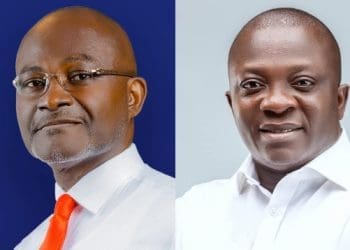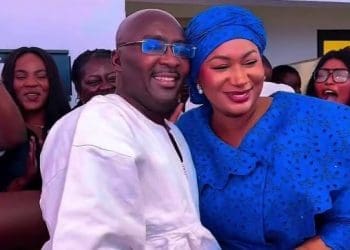A disturbing ruling by an Accra Circuit Court, presided over by Justice Samuel Bright Acquah, in the case of Republic v. Kwame Baffoe @ Abronye, has reignited debate about the equality of citizens before the law.
The judge’s explicit suggestion that “all men are equal, but some are more equal than others” not only echoes George Orwell’s satirical words in Animal Farm but also sends a chilling reminder that Ghana’s justice system may not treat all citizens with the same fairness.
The case, involving Abronye, a political figure facing two charges of misdemeanours, has exposed what many see as a creeping judicial philosophy that elevates state officials and political elites above ordinary citizens.
A dangerous judicial doctrine
In his ruling, Justice Acquah openly declared that though the law proclaims equality, in practice some individuals—particularly those in positions of power—deserve greater protection.
Citing the Inspector General of Police (IGP) as an example, the judge ruled that words directed at the head of the police could carry graver consequences than those directed at an ordinary Ghanaian.
This judicial stance, critics argue, entrenches a two-tier justice system where insults or criticism of powerful officials attract heavier punishments than similar remarks against less influential citizens.
It is a position that risks undermining the very foundation of democracy, which rests on the principle of equality before the law.
Selective freedom of speech
Justice Acquah leaned on the controversial adage by the late Uganda president Idi Amin: “I can assure you of freedom of speech but not freedom after speech.”
The judge wrongly attributed this quote to former Zimbabwe President Robert Mugabe.
What is even striking is a judge quoting a military leader like Idi Amin noted for abuses to back his ruling should worry everyone
He further argued that insults have polluted Ghanaian political discourse and, if left unchecked, could endanger national security.
While few dispute the need for civility in public discourse, the danger lies in how the court appears to interpret the law.
According to Justice Acquah, it is acceptable to criticise policies, but once individuals—especially high-ranking officials—are named, punishment must follow.
This standard risks criminalising political dissent and further shrinking Ghana’s already fragile civic space.
A consistency that punishes the weak
The judge defended his decision by pointing to past cases: Republic v. Raphael Okai Ankrah in May 2023, where an NDC supporter was remanded for insulting then-President Nana Akufo-Addo, and Republic v. Emmanuel Kwakye, a Wontumi TV journalist, who was also remanded for similar conduct.
He argued that the court has been “consistent” in punishing offenders under different political regimes.
Yet, this so-called consistency only highlights a systemic problem—justice that comes down heavily on individuals with little political clout, while more influential figures often escape accountability.
For ordinary Ghanaians—market women, students, taxi drivers—this ruling signals a future where a careless remark about a powerful figure could land them in prison, while their complaints against corruption, injustice, or abuse by the powerful may never be heard.
Bail denied under Orwellian logic
Invoking Section 96(5) of the Criminal Procedure Code, the court denied Abronye bail, claiming there was a likelihood of repeat offences and the possibility of absconding.
The accused was remanded into the custody of the National Intelligence Bureau (NIB), pending a review of the application on September 19, 2025.
This harsh treatment of a misdemeanour case, critics argue, reflects a worrying tendency to use remand as punishment rather than due process.
For the less privileged who lack powerful lawyers or political backing, this sets a dangerous precedent: that the court can silence them indefinitely under the guise of “protecting national security.”
A chilling effect on democracy
The broader implications of Justice Acquah’s ruling are grave.
If left unchallenged, it effectively means freedom of speech is conditional—safe only when directed at powerless individuals but perilous when aimed at those in authority.
Such a doctrine undermines Ghana’s democratic progress, tilts justice in favour of the elite, and entrenches fear among the less privileged.
It risks creating a culture where political leaders and senior officials are insulated from scrutiny, while ordinary citizens bear the full brunt of the law.
The call for vigilance
The ruling should concern every Ghanaian, regardless of political affiliation.
In a country where access to justice is already skewed by wealth and influence, Justice Acquah’s words dangerously legitimise inequality before the law.
For civil society, lawyers, and policymakers, this is a moment to push back and defend the principle that justice must be blind to status, position, or power.
Failure to do so could leave the less privileged—the very backbone of Ghanaian society—exposed to a system that punishes them for speaking truth while shielding the powerful from accountability.












